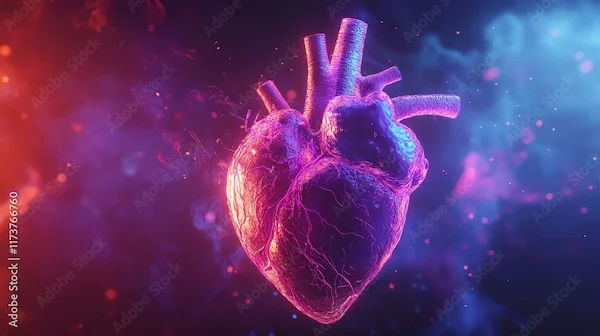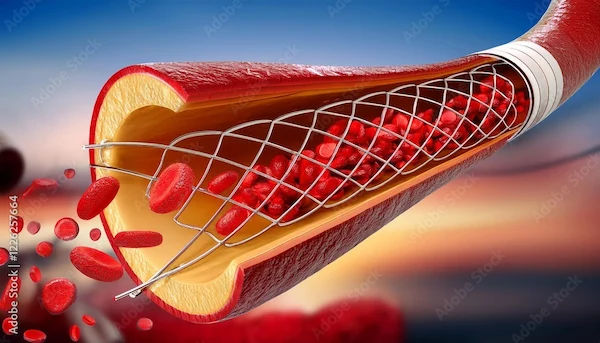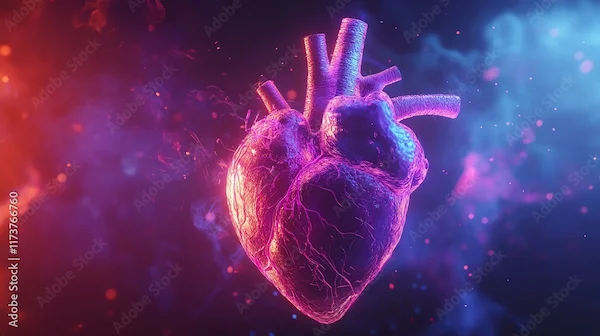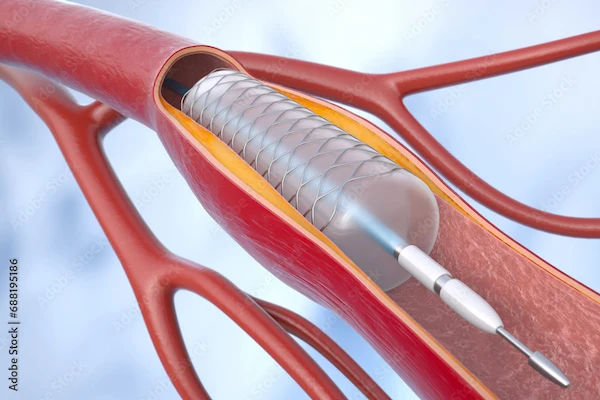Heart Attack In Young Indians: Understanding The Rising Concern
Explore the rising concern of heart attacks in young Indians. Learn about causes, risk factors, and preventive measures to protect heart health and reduce early cardiovascular disease risks.

Written by Dr Shreya Sarkar
Last updated on 3rd Jul, 2025
For a long time, Heart attacks, or myocardial infarctions, have been associated with older adults, particularly those with a history of smoking, poor diet, and a sedentary lifestyle. However, in recent times, an alarming rise in the occurrence of heart attacks among young Indians has been seen, especially those under the age of 40. Changes in lifestyle patterns, increasing stress, unhealthy eating habits, and genetic predispositions contribute to this worrying trend.
Understanding Heart Attack in Young Indians
A heart attack happens when the blood flow to a part of the heart muscle is obstructed, often due to plaque build-up in the arteries, which reduces oxygen supply. This can cause permanent damage to the heart muscle if not addressed immediately. Traditionally, heart attacks were thought to be a concern for older individuals with established risk factors such as high cholesterol, hypertension, and diabetes. However, the rise in heart attacks among younger people is now a substantial public health issue in India. Recent incidences show that young Indians, particularly in urban areas, are increasingly experiencing heart attacks.
Why Are Young Indians at Risk?
Several lifestyle and genetic factors contribute to the rising number of heart attacks among young Indians. Understanding these risk factors can help mitigate the impact and improve heart health among the younger population.
1. Unhealthy Diet and Poor Eating Habits
A significant contributor to heart disease in young Indians is poor dietary habits. The consumption of fast food, junk food, and processed food has risen manifold, particularly among the urban youth. These foods have having high content of trans fats, sodium, and sugar, leading to elevated cholesterol levels, hypertension, and obesity—all of which increase the risk of heart attacks.
2. Physical Inactivity and Sedentary Lifestyle
With the increasing popularity of digital entertainment and sedentary jobs, many young Indians sit for long periods. Lack of physical activity leads to weight gain, higher cholesterol levels, and poor cardiovascular health. Regular physical activity is crucial for maintaining heart health; without it, young individuals are more susceptible to heart attacks.
3. Stress and Mental Health Issues
Mental health has a profound impact on heart health. Chronic stress, anxiety, and depression can elevate blood pressure, increase the likelihood of clot formation, and exacerbate other risk factors, such as smoking and poor eating habits. In the fast-paced, highly competitive work culture prevalent in many urban areas of India, young individuals often face immense stress, which affects their overall well-being and cardiovascular health. Moreover, mental health issues often go undiagnosed or untreated in young people, further elevating the risk of heart attacks. The stigma surrounding mental health in India can deter young individuals from seeking professional help, which may worsen their heart health in the long term.
4. Smoking and Excessive Alcohol Consumption
Tobacco use and alcohol consumption are major risk factors for heart disease, and their prevalence among young Indians is alarmingly high. Cigarette smoking damages the blood vessels, increases cholesterol levels, and raises blood pressure—all factors that contribute to heart attacks. Similarly, excessive alcohol consumption raises the risk of hypertension, arrhythmias, and heart failure. Although being aware of the dangers of smoking and alcohol, many young Indians continue to engage in these unhealthy habits, unaware of their direct link to heart disease.
5. Genetic Predisposition
Genetics also plays an important role in heart health. Young Indians with a family history of heart disease are more likely to experience heart attacks at an early age. Genetic mutations, inherited high cholesterol levels, and predisposition to clotting disorders can all increase the likelihood of a heart attack. If heart disease runs in a family, individuals must be especially vigilant about their cardiovascular health and make proactive lifestyle changes to mitigate the risk.
6. Obesity and Overweight Issues
Obesity is a significant health issue in India, particularly in urban areas. Young people are consuming more calorie-dense foods with little regard for the nutritional content, contributing to weight gain and an increased risk of heart attacks along with conditions like high blood pressure, high cholesterol, and type 2 diabetes. Obesity is one of the most preventable risk factors for heart disease, and it is a growing concern among the Indian youth.
7. Lack of Awareness and Education
The lack of awareness and education about heart disease is one of the key reasons for the rise in heart attacks among young Indians. While many young people understand the risks associated with smoking and excessive alcohol, they are not aware of the importance of regular exercise, maintaining a healthy weight, and reducing stress. There is also limited education about recognising the early signs of heart disease, which often leads to delayed medical intervention and worsens outcomes.
Symptoms of Heart Attack in Young Indians
The symptoms of a heart attack in young persons can vary and may not always align with the classic symptoms seen in older individuals. Young people often experience atypical symptoms or dismiss early warning signs due to a lack of awareness. Common symptoms to look out for include:
Chest pain or discomfort: Often described as a feeling of pressure or tightness in the chest.
Shortness of breath: Difficulty in breathing, even with minimal physical activity.
Sweating: Unexplained, excessive sweating, especially cold sweats.
Pain in the jaw, neck, back, or stomach: May radiate to areas beyond the chest.
Nausea or dizziness: A feeling of lightheadedness or fainting, often accompanied by nausea.
Fatigue: Unexplained fatigue or exhaustion, even with adequate rest.
If any of these symptoms are experienced, especially if they come on suddenly or last for an extended period, it is vital to seek immediate medical attention.
Prevention of Heart Attacks in Young Indians
Preventing heart attacks among young Indians requires a combined approach, which includes lifestyle modifications, regular medical check-ups, and increased awareness about heart health. Some effective strategies include:
1. Adopting a Heart-Healthy Diet
A balanced, nutritious diet is vital for preventing heart disease. Young Indians should prioritise whole foods, such as fruits, vegetables, whole grains, lean proteins, and healthy fats like olive oil, nuts, and seeds. They should also reduce their intake of processed foods, sugary beverages, and trans fats.
2. Regular Physical Activity
Maintaining heart health by engaging in at least 30 minutes of moderate-intensity physical activity most days of the week is essential. This can include walking, jogging, cycling, or taking fitness classes. Regular exercise helps control weight, reduces stress, and lowers the risk of high blood pressure and diabetes.
3. Stress Management and Mental Health Care
Stress-reduction techniques, such as yoga, meditation, deep breathing, and mindfulness, can significantly improve heart health. Seeking professional help for mental health issues, such as anxiety and depression, is essential in preventing the long-term effects of stress on the heart.
4. Avoiding Smoking and Limiting Alcohol Consumption
Quitting smoking and limiting alcohol intake can reduce the risk of heart disease. Even young individuals who have been smoking for years can benefit from quitting, as the body can begin to recover almost immediately after cessation.
5. Regular Health Check-ups
Routine health check-ups are crucial for monitoring cholesterol levels, blood pressure, and blood sugar levels. Regular screening for heart disease risk factors can help identify potential problems early, allowing for prompt intervention.
Conclusion
The rising incidence of heart attacks among young Indians is a growing concern that requires urgent attention. With lifestyle changes, unhealthy eating habits, increasing stress levels, and a lack of awareness about cardiovascular health, the younger population is facing higher risks of heart disease. However, many of these factors are preventable through healthier choices such as maintaining a balanced diet, staying physically active, managing stress, and avoiding harmful habits like smoking and excessive alcohol consumption. Early diagnosis through regular health check-ups and understanding the risk factors associated with heart disease are key to reducing the impact of heart attacks. Raising awareness about the importance of heart health and providing accessible resources for the younger generation is critical. Only through collective efforts can we reverse this trend and ensure that the younger population of India enjoys a life free from the threat of early cardiovascular diseases.
Consult Top Cardiologist
Consult Top Cardiologist

Dr. Mangesh Danej
Cardiologist
8 Years • MBBS, MD (General Medicine), DNB (Cardiology)
Pune
Dr Danej clinic, Pune
(375+ Patients)

Dr. Nataraja Setty
Cardiologist
21 Years • MBBS, MD (General Medicine), DM (Cardiology)
Bengaluru
Sapphire heart care clinic, Bengaluru

Dr Yogendra Singh Rajput
Cardiologist
16 Years • MBBS, MD (General Madicine), DM (Cardiology)
Gurugram
Svasthya Child & Cardiac Care, Gurugram
Dr. Praveen Kumar
Cardiologist
25 Years • MBBS, MD (Medicine), DM (Cardiology)
Ghaziabad
Navaanya wellness, Ghaziabad
Dr. Dixit Garg
Cardiologist
10 Years • MBBS , DNB (General medicine) , DNB (cardiology)
Gurugram
Smiles & Hearts, Gurugram




